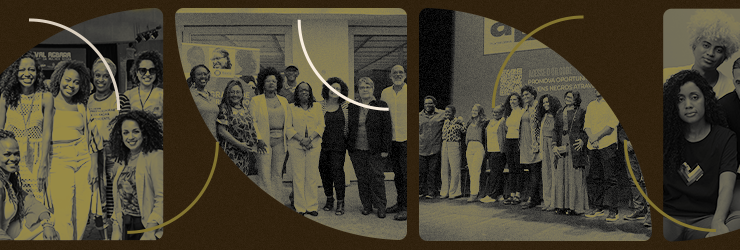Carola MB Matarazzo, executive director of MBM, recommends works that made a difference in her education and can impact you too!
Reading, in itself, is therapy. When this habit is combined with motivational and pleasurable themes, which fuel thought and broaden horizons, the activity can become a true source of inspiration and action.
Amidst so many options that lead us to reflect on our role in society, the MBM blog invited Carola MB Matarazzo, our executive director, to recommend 5 books to inspire social leaders on this challenging journey towards a more supportive and fair world .
The selection covers topics such as breaking indifference, social intelligence, altruism in the history of humanity, moral limits of the market and conflict resolution. Check out the list below and enjoy reading!
The Decision the World Needs
by Celso Grecco
Anyone who reads the book “The Decision the World Needs” will certainly feel much more motivated to build a better future for everyone. Celso Grecco presents, with cases and examples, seven ways for people to abandon indifference and start taking action towards a great transformation. It is worth highlighting that fighting for a better world and investing in this change is not an action for superheroes, angels or billionaire philanthropists. Anyone can become aware of leaving the bubble and connecting to a current of good. As Grecco highlights very well, there is an interdependence between people within society and a collective effort is needed to face together the complexities of socio-environmental problems.
Social Intelligence – The Perspective of a World Without Hunger(s)
by Luciana Chinaglia Quintão
The author of this work, Luciana Chinaglia Quintão, is the president of Banco de Alimentos, a civil society organization that helps those experiencing food insecurity. However, when she talks in the book about “a world without hunger(s)”, she is not referring to the fact that a person does not have access to food, but to deprivations in the most diverse forms, such as, for example, ' hunger for justice, education and housing. Luciana presents a comprehensive and systemic view of social intelligence and discusses hunger in the history of Brazil, highlighting that the problem is not only caused by economic issues, but also by the lack of social intelligence in the country.
Humanity: An Optimistic History of Man
by Rutger Bregman
Are human beings really evil by nature? Dutch historian Rutger Bregman argues not. As a result of seven years of work on an international journalism website, he studied the subject and produced this work that encourages us to think about the characteristics and behaviors of men throughout history. His arguments and the facts described help us identify how much generosity, kindness and collaboration were and are present in humanity. Altruism is seen not as just an optimistic issue for our future, but as a realistic one. The book is a great invitation to think about the good side of men and serves as a stimulus to act in a supportive way in our society.
What Money Can't Buy
by Michael J. Sandel
The American philosopher and professor Michael Sandel, through this book, criticizes contemporary consumer society. He argues that the logic of buying and selling has gone beyond material goods and increasingly governs people's lives. Instead of a 'market economy', a kind of 'market society' would be in place. Sandel cites cases in which money is strangely at the forefront, such as in a school in the United States where it was decided to pay students to read books, instead of encouraging the habit as a source of pleasure. In a world where money reigns, the problem of social inequality is also accentuated. As almost everything can be purchased, what about those who do not have economic power?
Power & Love: Theory and Practice of Social Change
by Adam Kahane
“Power & Love: Theory and Practice of Social Change” was written by Canadian Adam Kahane, a specialist in conflict resolution, who works with civil society organizations, companies and governments on challenges such as peace processes. In this book, Kahane highlights that, to solve highly complex problems, it is necessary to reconcile two impulses that might seem to be disconnected, but would be complementary: 'power' and 'love'. It is important to highlight that in the work he talks about 'power' as a desire to achieve a purpose and refers to 'love' as a desire to unite with another. Kahane tells how he learned, through trial and error, to balance these two impulses and presents different programs, carried out in different parts of the world, that have been successful.
Did you like the directions? Share with those who are also interested in this type of reading and spread inspiration!





